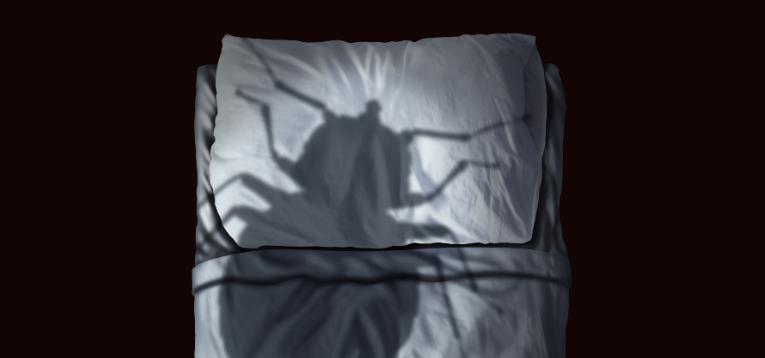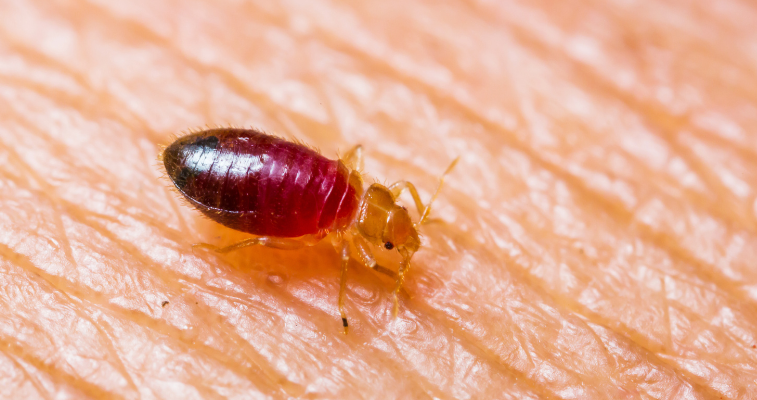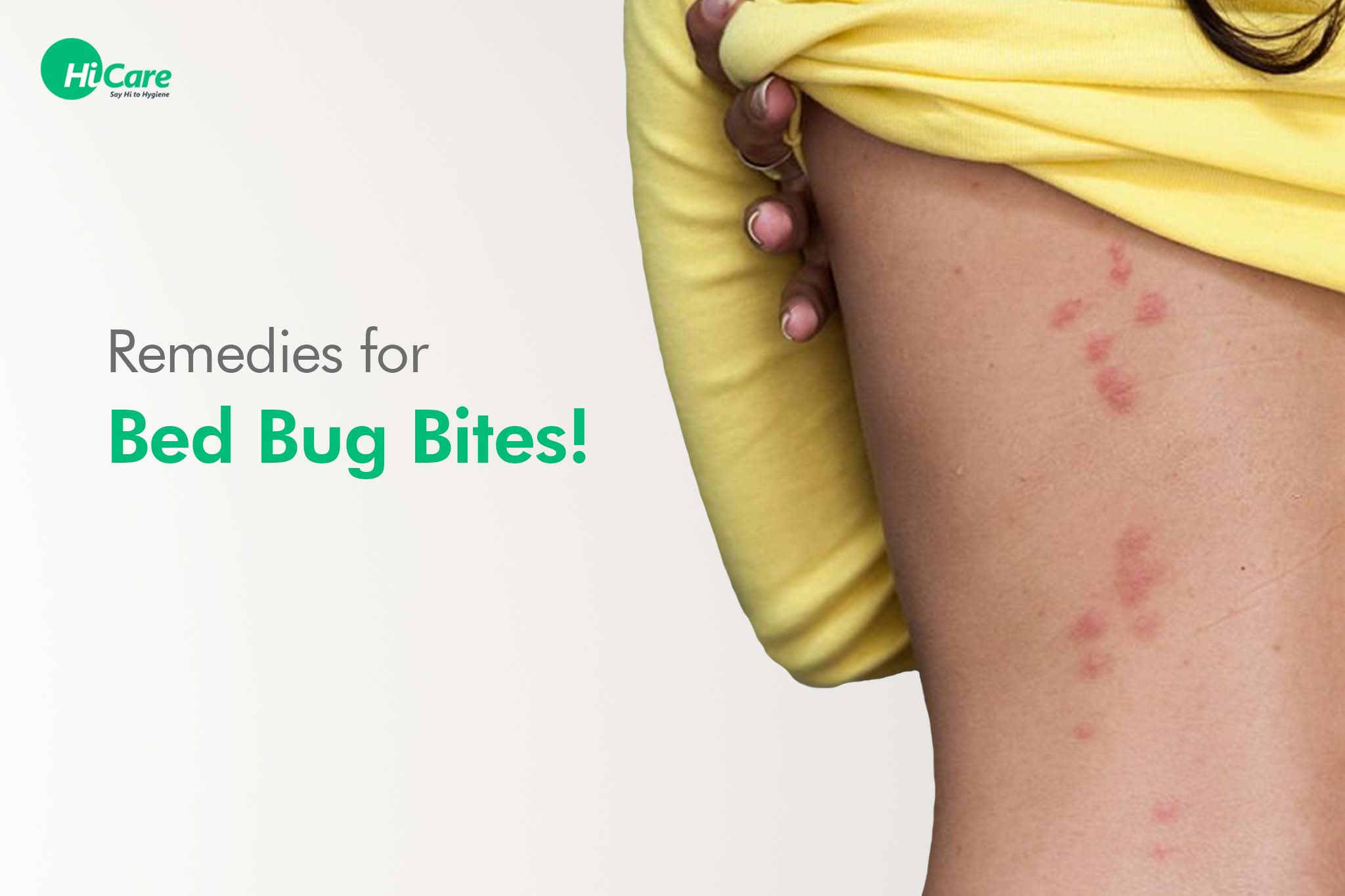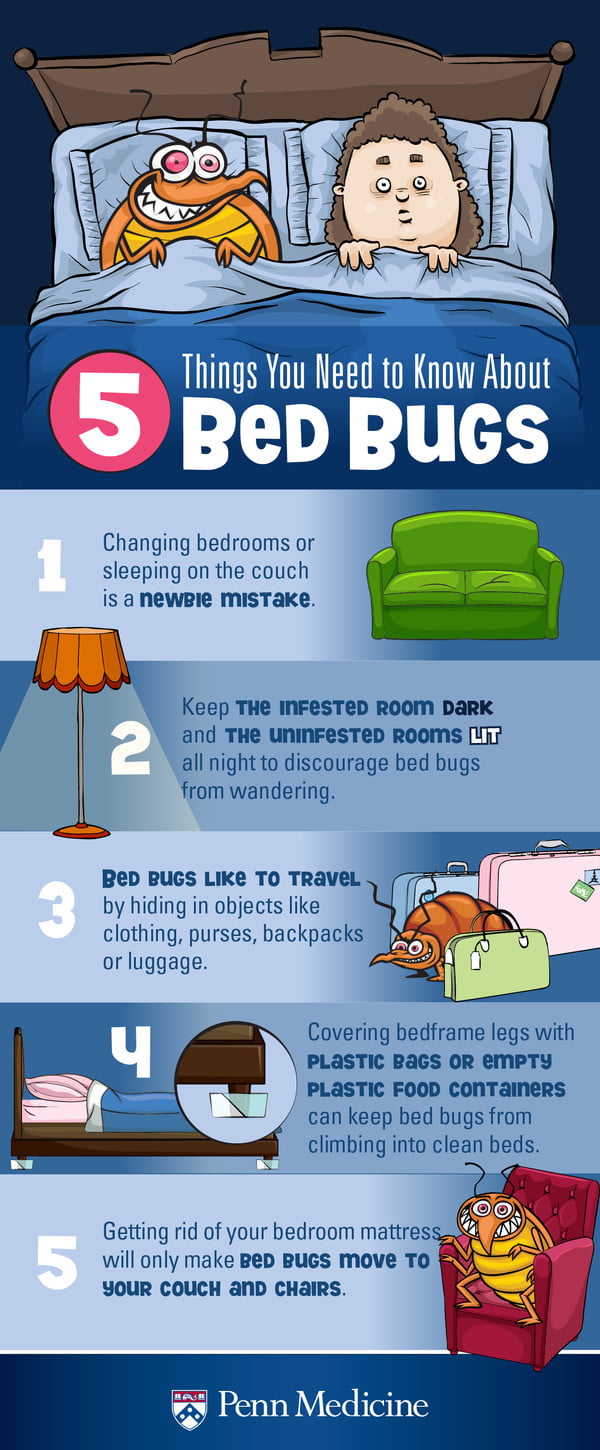To stop bed bugs from biting at night, use protective mattress encasements and regularly wash bedding in hot water. Ensure your bedroom is clean and clutter-free to reduce hiding spots for bed bugs.
Bed bugs are a common nocturnal nuisance, feasting on human blood while their hosts sleep. These tiny pests can cause itchy bites and disrupt your sleep, leading to a significant impact on your quality of life. Thankfully, there are proactive steps you can take to mitigate this issue.
Proper hygiene and room maintenance play crucial roles in creating an environment that’s inhospitable to bed bugs. Employing protective measures such as bed bug-proof mattress covers and interceptor cups on bed legs can also help. Regular inspection of your sleeping space and swift action at the first sign of an infestation are vital in keeping these unwanted guests at bay. Remember, tackling the problem early can save you from a larger infestation and ensure peaceful nights free from bed bug bites.
The Creepy Crawlies: Bed Bugs
No one invites bed bugs into their home. Yet, these tiny, blood-thirsty pests often sneak in, turning your cozy bed into a nightly dining spot. Don’t lose sleep over these unwelcome guests. Learn to stop bed bugs from biting you.
Identifying Bed Bug Presence
Knowing what to look for is the first step. Look for these signs:
- Small, brownish-red insects lurking around your mattress seams or bed frame
- Rusty or reddish stains on bed sheets or mattresses from crushed bugs
- Tiny, black spots, which are their dried excrement
- Presence of tiny, pale-yellow skins that nymphs shed as they grow
- Sweet, musty odor in your bedroom
Lifecycle And Feeding Habits
Understanding a bed bug’s lifecycle helps in combating them. Here’s a quick look:
| Stage | Description |
|---|---|
| Egg | White, oval, about 1mm long |
| Nymph | Grows in five stages, shedding skin at each |
| Adult | Lives up to 10 months, often longer with regular feeding |
Bed bugs typically feed every 5-10 days, but they can live months without feeding.
Their peak biting period is at night. They’re attracted by the carbon dioxide and warmth humans emit.

Credit: www.rentokil.com
Pre-bite Strategies
Sleep tight and don’t let the bed bugs bite! This age-old saying has never been more relevant. Bed bugs are a growing concern, and their itchy bites disrupt a peaceful night’s sleep. Understanding pre-bite strategies is vital for a bug-free slumber. These tactics will help you stop bed bugs in their tracks before they have a chance to bite.
Regular Bedding Inspections
Vigilance is key in the fight against bed bugs.
- Strip your bed: Check for bugs, excrement, or eggs.
- Examine seams: Use a flashlight for better visibility.
- Wash bedding: Hot cycles kill bed bugs and eggs.
Securing The Bed Frame And Mattress
Creating a secure fortress is essential for your bed. Prevent these pests from climbing aboard with a few clever defenses.
- Encase your mattress: A protective cover traps bugs inside, stopping them from biting.
- Move the bed: Keep it away from walls and furniture.
- Apply interceptors: Placing these under bed legs traps bugs trying to climb up.
Remember, a proactive approach is the best defense against bed bugs. Secure your sleeping area, and enjoy restful, bite-free nights.
Barriers To Bites
Imagine a night of peaceful sleep, undisturbed by the nuisance of bed bugs! Turning this into reality requires creating effective barriers to bites. The tiny, elusive bed bugs can’t withstand well-crafted defenses. Below are strategic ways to shield yourself and say goodbye to those itchy welts for good.
Using Mattress Encasements
These are your first line of defense. Mattress encasements are special covers made to trap bed bugs within, cutting off their food supply – that’s you! This means they eventually die off. For best results:
- Choose a bed bug-proof encasement: It must have tight zippers and strong seams.
- Check for certifications: Look for labels showing the product is tested for bed bugs.
- Inspect regularly: Look for tears or holes and seal them immediately.
Applying Essential Oils
Some essential oils act as natural repellents that bed bugs dislike. Using these can reduce the likelihood of bites. It’s key to:
- Identify effective oils: Tea tree, lavender, and peppermint oils are popular.
- Mix with water: Create a diluted solution in a spray bottle.
- Apply around sleeping areas: Focus on the mattress, bed frame, and baseboards.
Chemical Warfare
Engaging a full-on chemical warfare against bed bugs brings several options to the table. Battling these tiny bloodsuckers requires a strategic approach. Proper use of chemical treatments can stop bed bugs dead in their tracks. Let’s explore both man-made and natural solutions to ensure peaceful, bite-free nights.
Insecticide Options
Professional-grade insecticides provide a potent barrier against bed bug infestations. These are some options:
- Pyrethrins and Pyrethroids: Mimicking chrysanthemum flowers, they attack bed bug nerves.
- Desiccants: Silica gel-based products that dry out the bugs’ protective layers.
- Neonicotinoids: Disturb the bugs’ nervous systems, causing paralysis.
- Insect Growth Regulators (IGRs): Disrupt bed bug life cycles, preventing reproduction.
Ensure labels get read and safety protocols followed. Applicators must employ gloves and masks to prevent inhalation and skin contact.
Natural Repellents And Their Efficacy
Natural solutions offer a safer and eco-friendly alternative. These are your green guards:
| Repellent | Primary Ingredient | Efficacy |
|---|---|---|
| Essential Oils | Tea tree, Lavender | Moderate |
| Diatomaceous Earth | Silicon dioxide | High |
| Black Walnut Tea | Juglone | Low |
Used consistently, these natural agents can deter bed bugs without harming pets or family members. Essential oils need frequent reapplication. Diatomaceous earth, once settled, stays potent until disturbed. Spread finely and uniformly for the best defensive line.
Cleanliness Is Key
Victory against bed bugs begins with cleanliness. A clean sleeping area reduces bed bug hideouts. It can prevent these pests from biting you at night. Let’s delve into key routines to maintain a bed bug-free bedroom.
Routine Washing And Drying
Bed bugs despise heat. Regularly wash your bedding to eliminate these pests. Consider the following washing tips:
- Wash sheets, pillowcases, and blankets weekly.
- Use hot water, around 120°F (49°C) or higher.
- Dry on the highest heat setting for at least 30 minutes.
- Heat-treat curtains and other fabrics occasionally.
Hot, soapy water and high dryer heat kill bed bugs effectively.
Decluttering The Bedroom
Clutter offers bed bugs many hiding spots. A tidy room leaves them exposed. Follow these decluttering steps:
- Remove items from under the bed.
- Keep clothes in sealed bags or containers.
- Reduce piles of magazines, books, and papers.
- Check and clean storage boxes regularly.
By decluttering, you limit bed bug hiding places.
Professional Help
Waking up to bed bug bites can disrupt your peaceful night’s sleep. Seeking professional help becomes essential, especially when all DIY methods fail to eradicate these pesky intruders. Pest control experts possess both the knowledge and the tools necessary to eliminate bed bugs effectively.
When To Call Pest Control
A sure sign to call pest control is when you keep getting bitten despite trying home remedies. Other indicators include:
- Seeing live bed bugs: If you spot these insects around your mattress or furniture, it’s time for professional help.
- Continual bites: Multiple bites every night are a red flag.
- Excessive itching and rash: These symptoms after bedtime could denote a severe infestation.
If home treatments fail and signs persist, consult a pest control service quickly.
What To Expect From Extermination
Understanding the extermination process can prepare one for what lies ahead:
- Inspection: Professionals will inspect your space to find infestation levels.
- Treatment Plan: They will suggest a tailored solution for your problem.
- Execution: Using specialized tools and substances, experts will treat your home.
- Follow-up: A second visit ensures all bed bugs are gone.
Pest control may also advise on preventing future infestations.
| Step | Detail |
|---|---|
| 1. Contact | Reach out to a professional team. |
| 2. Inspection | Schedule an in-depth assessment. |
| 3. Treatment | Let experts apply their methods. |
| 4. Prevention | Learn how to maintain a bed bug-free environment. |
Trust that these seasoned pros can restore your peace of mind and uninterrupted sleep.
Ongoing Vigilance
The war against bed bugs doesn’t end with one battle. It’s a continuous struggle that demands your unwavering attention. Your goal? To ensure these tiny, nocturnal pests don’t turn your sweet dreams into itchy nightmares. Ongoing vigilance is your shield and sword in keeping the bed bugs away for good.
Monitoring After Treatment
You’ve treated your space, but the vigil doesn’t stop here. Keep a close eye on the places bed bugs love. Check your bed, furniture, and even the crevices where they might lurk. Here’s how you can stay on top of things:
- Use interceptors under bed and furniture legs — these will trap bed bugs.
- Examine your bedding weekly for signs of bed bug activity.
- Look out for tiny blood spots on sheets or bug excrement.
Preventive Measures To Keep Them At Bay
Don’t let bed bugs catch you off guard. Be proactive with these steps:
- Encase your mattress and pillows in bed bug-proof covers.
- Vacuum regularly and promptly dispose of the vacuum bag.
- Reduce clutter to eliminate bed bug hiding spots.
Remember, a clean and clutter-free environment is less inviting to bed bugs.

Credit: www.rentokil.com
Your Action Plan
Bed bugs can be a nightmare, causing itchy, painful bites during the night. This plan will help you stop them from biting and ensure peaceful sleep. Let’s dive into the action plan designed to reclaim your bed from these pesky intruders!
Step-by-step Guide To A Bed Bug Free Night
- Check for Signs: Look for tiny blood stains, bug droppings, or shed skins.
- Protect Your Bed: Encase your mattress and pillows with bug-proof covers.
- Declutter: Remove clutter where bed bugs can hide, especially near your bed.
- Wash Bedding: Regularly wash sheets, pillowcases, and blankets in hot water.
- Vacuum: Thoroughly vacuum the room, focusing on the bed and surrounding areas.
- Use Insecticides: Apply bed bug sprays or powders, following safety guidelines strictly.
- Repeat Regularly: Consistency is crucial. Repeat these steps periodically.
Maintaining A Bug-free Environment
- Inspect Regularly: Check your sleeping areas often for signs of bed bugs.
- Seal Cracks: Fill cracks in walls and furniture where bugs could hide or enter from.
- Monitor: Place bed bug interceptors under bed legs to catch and monitor for bugs.
- Be Vigilant: Stay alert when traveling or bringing second-hand furniture into your home.
- Professional Help: If the problem persists, consult a pest control expert promptly.
Common Myths Debunked
When darkness falls, and you tuck yourself in, tiny uninvited guests might lurk: bed bugs. Much is said about these pesky invaders, but let’s spill the truth and bust some myths about preventing bed bug bites.
Myth Vs. Reality In Bed Bug Prevention
Bed bugs can turn sweet dreams into nightmares. It’s time to distinguish fact from fiction.
- Myth: Bed bugs prefer dirty spaces.
Reality: Cleanliness doesn’t deter them; they seek human warmth and carbon dioxide. - Myth: They won’t climb on smooth surfaces.
Reality: Bed bugs can scale almost any surface to reach their food source. - Myth: Over-the-counter sprays can end an infestation.
Reality: Professional pest control is often necessary to fully eradicate bed bugs.
Truths You Need To Know
Uncover essential truths to keep these biters at bay:
| Truth | Why It Matters |
|---|---|
| Bed bugs are hitchhikers. | They can travel on clothes and luggage. Always check your belongings. |
| They hide in cracks and crevices. | Inspect your bed frame, mattress, and furniture regularly. |
| Heat treatment works well. | Bed bugs cannot survive high temperatures. Consider steam cleaning. |
Remember, vigilant inspection and professional help are your best defenses against bed bug bites. Sleep tight without the bed bug bite!

Credit: hicare.in
Frequently Asked Questions For How To Stop Bed Bugs From Biting You At Night?
Can Bed Bug Bites Be Prevented At Night?
Absolutely. Ensure your bed is bed bug-free by using encasements on your mattress and pillows. Regularly wash your bedding in hot water, vacuum your room thoroughly, and consider using bed bug interceptors under bed legs to prevent bed bugs from climbing.
What Attracts Bed Bugs To Your Bed?
Bed bugs are attracted to warmth, carbon dioxide, and human scent. They usually emerge at night when you’re asleep due to the CO2 you exhale and the body heat you emit. Maintaining a clean sleeping area can minimize these attractants.
How Do You Stop Bed Bugs From Biting?
To stop bed bugs from biting, regularly inspect and clean your bedding and mattress. Seal crevices and cracks in the bed frame. Employ bed bug-proof encasements and consider natural deterrents like essential oils, although their effectiveness is not scientifically proven.
Are There Natural Remedies To Ward Off Bed Bugs?
Certain natural remedies may help deter bed bugs, such as tea tree oil, lavender, and peppermint oil. However, these methods are not guaranteed to fully eradicate bed bugs and should be used alongside thorough cleaning and professional extermination if necessary.
Can the same methods be used to prevent both mosquito and bed bug bites?
When experiencing itchy bites, it can sometimes be difficult to tell the difference between mosquito bites and bed bug bites. However, the methods to prevent these bites are not the same. Mosquitoes can be deterred by using repellents and eliminating standing water, while bed bugs require thorough cleaning, vacuuming, and sealing cracks. Knowing how to tell the difference between mosquito bites and bed bug bites is crucial for effective prevention.
Conclusion
Battling bed bug bites during the night can disrupt your sleep and peace of mind. By integrating the strategies outlined, you’ll reclaim the tranquility of your bedroom. Consistent prevention methods paired with professional advice will lead to a bite-free existence.
Prioritize these actions and enjoy undisturbed, restful nights ahead. Sleep tight without the bed bug bites!
{ “@context”: “https://schema.org”, “@type”: “FAQPage”, “mainEntity”: [ { “@type”: “Question”, “name”: “Can bed bug bites be prevented at night?”, “acceptedAnswer”: { “@type”: “Answer”, “text”: “Absolutely. Ensure your bed is bed bug-free by using encasements on your mattress and pillows. Regularly wash your bedding in hot water, vacuum your room thoroughly, and consider using bed bug interceptors under bed legs to prevent bed bugs from climbing.” } } , { “@type”: “Question”, “name”: “What attracts bed bugs to your bed?”, “acceptedAnswer”: { “@type”: “Answer”, “text”: “Bed bugs are attracted to warmth, carbon dioxide, and human scent. They usually emerge at night when you’re asleep due to the CO2 you exhale and the body heat you emit. Maintaining a clean sleeping area can minimize these attractants.” } } , { “@type”: “Question”, “name”: “How do you stop bed bugs from biting?”, “acceptedAnswer”: { “@type”: “Answer”, “text”: “To stop bed bugs from biting, regularly inspect and clean your bedding and mattress. Seal crevices and cracks in the bed frame. Employ bed bug-proof encasements and consider natural deterrents like essential oils, although their effectiveness is not scientifically proven.” } } , { “@type”: “Question”, “name”: “Are there natural remedies to ward off bed bugs?”, “acceptedAnswer”: { “@type”: “Answer”, “text”: “Certain natural remedies may help deter bed bugs, such as tea tree oil, lavender, and peppermint oil. However, these methods are not guaranteed to fully eradicate bed bugs and should be used alongside thorough cleaning and professional extermination if necessary.” } } ] }Related posts:

I’m MD Tanvir, and I bring years of expertise gained from working closely with pest control companies to the forefront. My journey in the industry has inspired me to launch Bug Battler, a platform aimed at equipping people with the know-how to combat pests autonomously. Through Bug Battler, I aim to empower individuals with practical insights to tackle pest infestations effectively.

